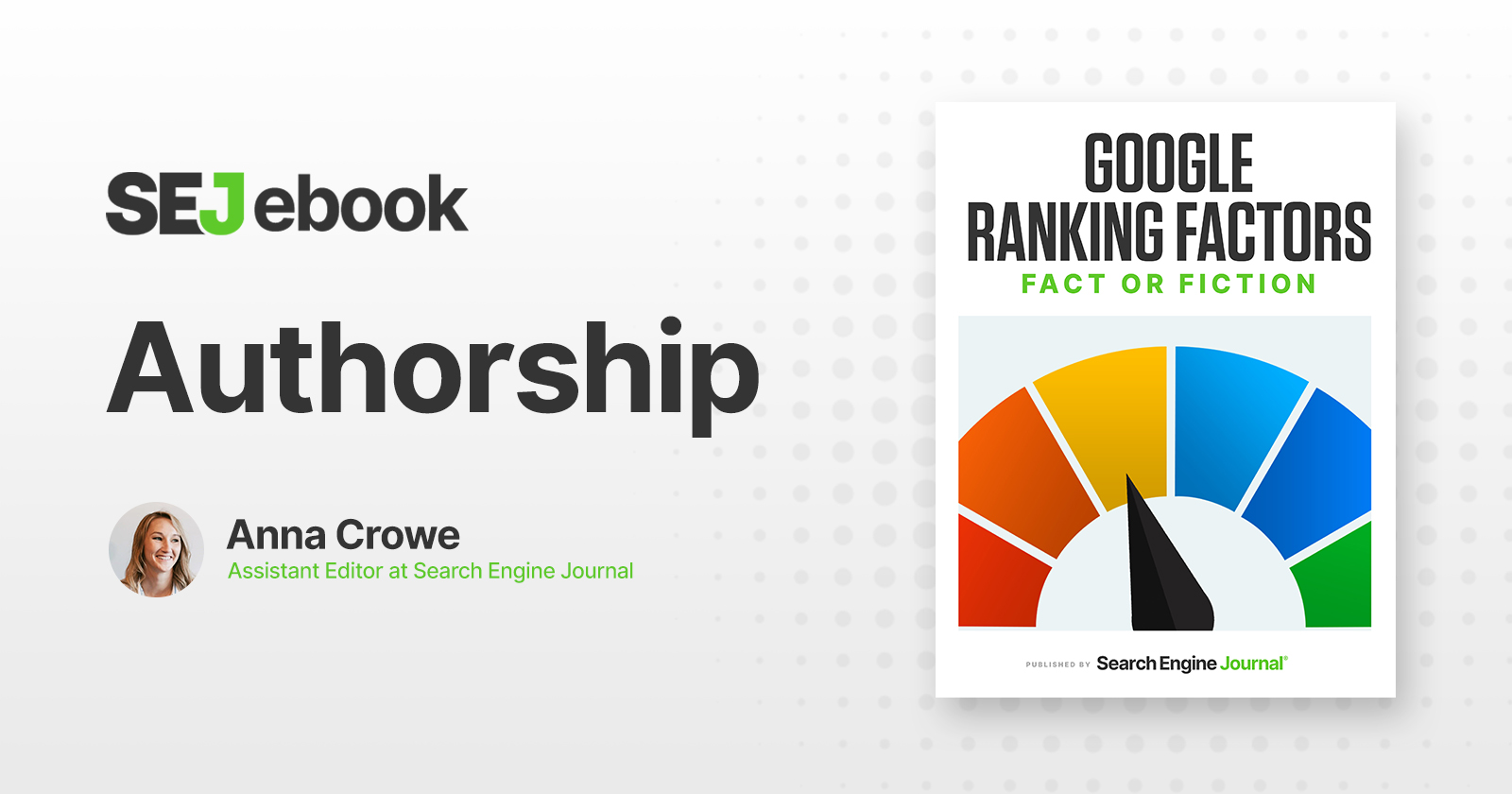
Is there anything scarier reading an article providing medical advice from a journalism major fresh out of college with no medical background?
The truth is, not everything you read online is for your benefit. A lot of online content is just downright untrue. While authors may come from a harmless place, when certain copy is taken as the truth, it can become pretty harmful.
This is where the authority of the author (or author rank) begins to impact your content.
Here, we’re debunking the myths around author authority.
Read on to find out whether or not author authority is a ranking factor.
The Claim: Author Authority as a Ranking Factor
When it comes to Google, it would make sense for them to value author authority as a ranking factor because of the E-A-T (Expertise, Authoritativeness, and Trustworthiness) guidelines.
But do search engines really care who created the content? And, does who the author is impact ranking algorithms?
Spoiler alert: There is not enough evidence to support this claim. But interest in this topic is growing.
Author Authority as a Ranking Factor: The Evidence
Let’s start with the first question, is author authority a ranking factor?
No, author authority is not a ranking factor. However, there are Google patents to help them identify authors for specific pages.
In August 2005, Google filed a patent for Agent Rank. If you want to learn more about that, Bill Slawski breaks down Agent Rank here.
The short version? Google’s patent uses “digital signatures” to rank content based on reputation scores.
On June 20, 2011, Google confirmed it was supporting authorship markup. Remember rel=”author:?
In 2014, Mark Traphagen ran a study on authorship adoption to show authorship adoption by authors was slow. He found that 70% of authors did not connect their authorship with content.
Later in 2014, authorship markup was officially removed.
In 2016, Google’s Gary Illyes said at an SMX conference that Google is “not using authorship at all anymore” – but they know who the author is.
How does Google know this? Well, we learned in this 2021 video that Google looks at a number of factors (e.g., links to profile pages, structured data, other visible information on a page) as part of a process called reconciliation.
Other relevant evidence we found is from August 21, 2018, when Google’s John Mueller confirmed that Google does not use author reputation as a ranking factor.
Now, what about E-A-T. Reputation is different than “expertise” and “authoritativeness.”
Reputation is how others view the author.
Expertise and authoritativeness are characteristics that Google uses to evaluate the author.
But recent patents show how authorship is evolving. For instance, in March 2020, Google filed a patent called Author Vectors to identify authors through internet-based writing styles.
In Slawki’s evaluation of the patent, he describes how the process works:
“Different authors can have different writing styles and different levels of expertise and interest in different topics.
Google is telling us with this new patent on author vectors that they may be able to identify the authors of unlabeled content.”
The fact is, we know that Google is getting better at determining who the authors of content might be with the updates to their Quality Rater Guidelines.
But we don’t know why or how they are using this to support their ranking factors.
One thing we know for sure is that Google recommends adding an author’s URL to article schema.
Author Authority as a Ranking Signal: Our Verdict
Author authority has had its ups and downs over the years. And with Google’s Quality Rater Guidelines related to E-A-T, it’s causing a bit of a gray area in SEO.
While author authority may not directly impact your organic search rankings, it’s still smart to follow Google’s Quality Rater Guidelines to improve your content performance.
Featured image: Paulo Bobita/






